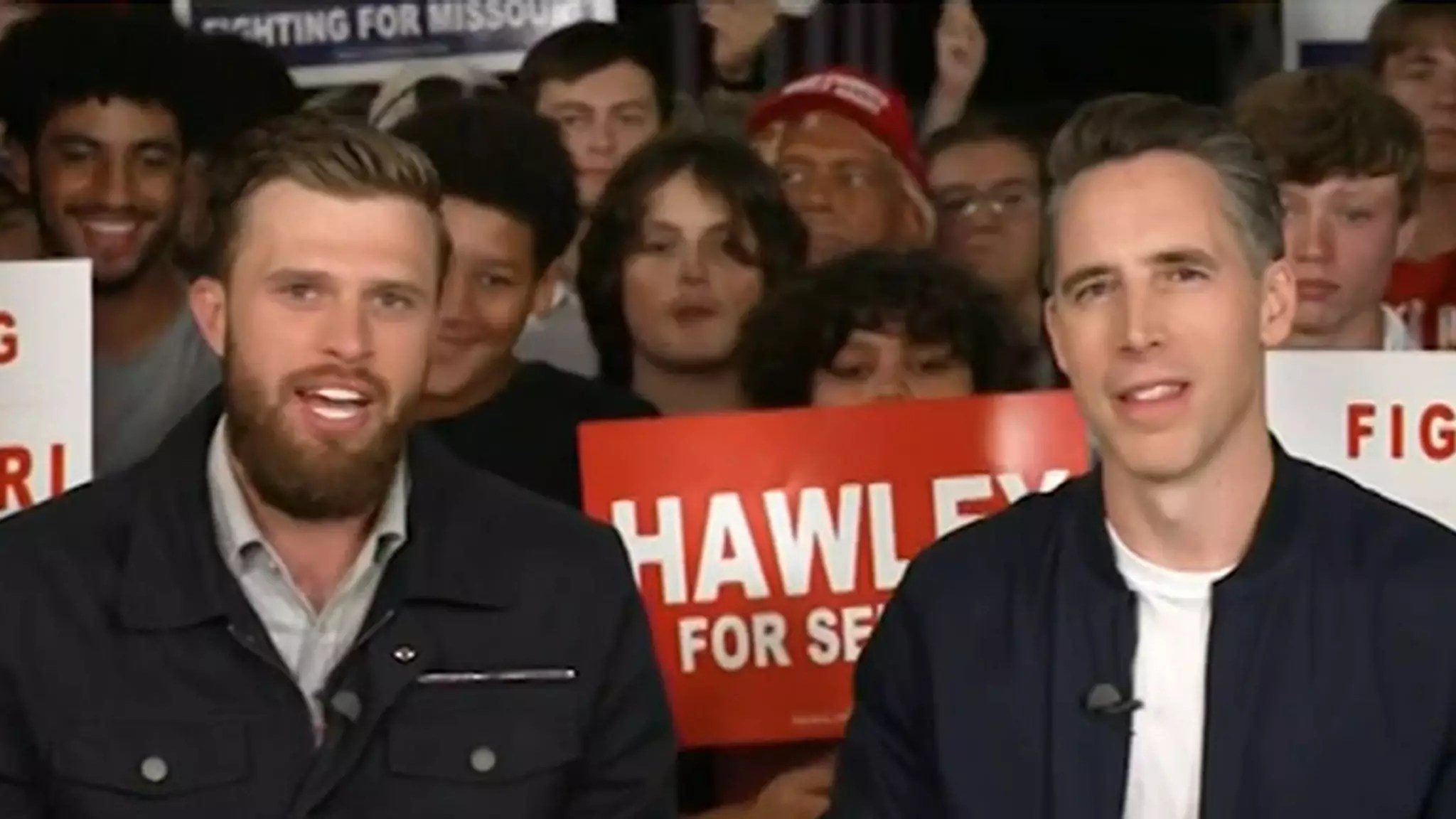In today’s world, the lines between sports, politics, and personal beliefs can often become blurred. This has been prominently demonstrated by Harrison Butker, the kicker for the Kansas City Chiefs, who has taken a public stance on a highly sensitive issue: the pro-life movement. During a recent campaign event in Missouri for Senator Josh Hawley, Butker expressed his unwavering commitment to supporting Donald Trump, whom he believes embodies the most pro-life political stance. Such declarations not only highlight Butker’s personal values but also open the door to discussions about how athletes wield their influence on societal issues.
At 29 years old, Butker identifies deeply with his Christian faith, which inherently shapes his views on critical issues like abortion. In an interview on FOX News’ “The Ingraham Angle,” Butker emphasized the importance of defending the most vulnerable members of society—namely, unborn children. His passionate rhetoric reveals the weight he places on moral and ethical considerations over traditional political agendas. His assertion that “we have to be prayerful men that put God first” illustrates how Butker perceives faith as central to making political choices. This viewpoint resonates with many religious voters, further elucidating how personal beliefs can intersect with political advocacy.
Interestingly, Butker’s outspoken support for Trump does not appear to be universally shared among his teammates. Figures like Brittany Mahomes, wife of Chiefs quarterback Patrick Mahomes, display mild political leanings toward Trump, though none have made declarations as bold as Butker’s. Conversely, Patrick Mahomes and fellow teammate Travis Kelce have remained relatively apolitical in public forums, suggesting a complex dynamic within the team regarding political endorsement. Such contrasts highlight not only individual beliefs but the varying comfort levels athletes have when integrating personal convictions with their professional lives.
Amidst the political discourse, Butker also addressed his polarizing commencement speech delivered at Benedictine College. Initial perceptions suggested a misogynistic undertone to his remarks, which led to significant backlash. However, he passionately clarified that his intention was to celebrate the often-overlooked role of homemakers and caregivers. By articulating this perspective, Butker aims to promote a more nuanced understanding of women’s roles in society, illustrating the complexities and challenges in discussing feminist issues within pro-life dialogues.
As the upcoming presidential election looms ever closer, athletes like Butker are not just voicing their opinions but engaging in the broader narrative surrounding political identities in sports. With just 25 days remaining until voters take to the polls, sports fans witness an evolving trend where athletes increasingly leverage their platforms to advocate for personal beliefs. As the landscape continues to evolve, it will be intriguing to see how sports figures like Butker navigate the intricate intersection of faith, politics, and the responsibilities of their public and professional personas. Engaging in civic discourse while balancing personal convictions is a delicate dance that athletes today are increasingly willing to undertake, thus redefining the role of sports in America’s cultural dialogue.







Leave a Reply